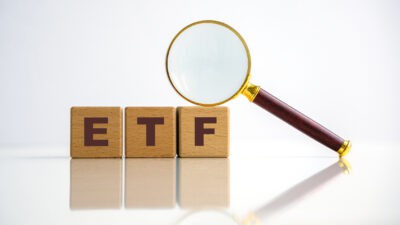There are many potential falls when it comes to investing. One of the main problems is a lack of proper diversification.
A portfolio mostly attributed to Commonwealth Bank of Australia (ASX: CBA), Australia and New Zealand Banking Group (ASX: ANZ), Westpac Banking Corp (ASX: WBC), National Australia Bank Ltd (ASX: NAB) and Telstra Corporation Ltd (ASX: TLS) is not diversified.
One of the quickest and easiest ways to get quick diversification is with an exchange-traded fund (ETF). The 'exchange-traded' part simply means you can buy it on the ASX. The 'fund' usually refers to an index of some sort.
There are many indices out there, such as Vanguard Australian Share ETF (ASX: VAS) or iShares S&P 500 ETF (ASX: IVV), which are based on 300 of the biggest businesses in Australia and 500 of the biggest businesses listed in the US respectively.
Patient investors who simply buy and hold the above indices should do very well over long periods of time.
However, it's also possible to find index funds that offer diversification but may also be able to beat the market. Here are two examples:
Betashares Global Cybersecurity ETF (ASX: HACK)
Although we don't have to worry about nuclear bombs much these days, we increasingly need to keep our eyes open to the fact that there are many cyber criminals wanting to cause harm to governments, businesses and individuals.
Many companies have intellectual property that is integral to remain in their hands. Households don't want their bank accounts hacked. Governments need to keep tax and health records safe.
This ETF provides exposure to some of the biggest cybersecurity businesses in the world such as Splunk, VMware, Palo Alto Networks, Cisco Systems and Symantec.
Over the past year this ETF's return has been an impressive 45.7%. I definitely wouldn't expect the same over the next 12 months. But over the long-term this group of companies could grow impressively as the importance of cybersecurity increases.
BetaShares Global Agriculture ETF (ASX: FOOD)
This ETF is devoted to some of the largest food-related businesses in the world such as Archer Daniels Midland, Deere & Co, Kubota, Marubeni and Tyson Foods.
Food is essential to our lives. There are fewer and fewer agricultural businesses that can deliver continual improvements in food production efficiency due to the technology required.
Some food experts believe that the world faces a food shortage by 2030. This could make the constituents of this ETF increase substantially in value.
Foolish takeaway
I believe both of these two ETFs can be good ways to diversify your portfolio both through industry and geography based on where the shares are listed and generate earnings.








